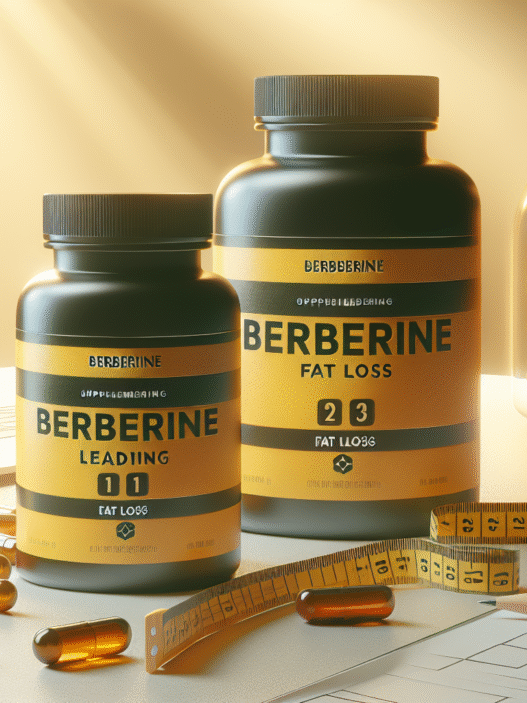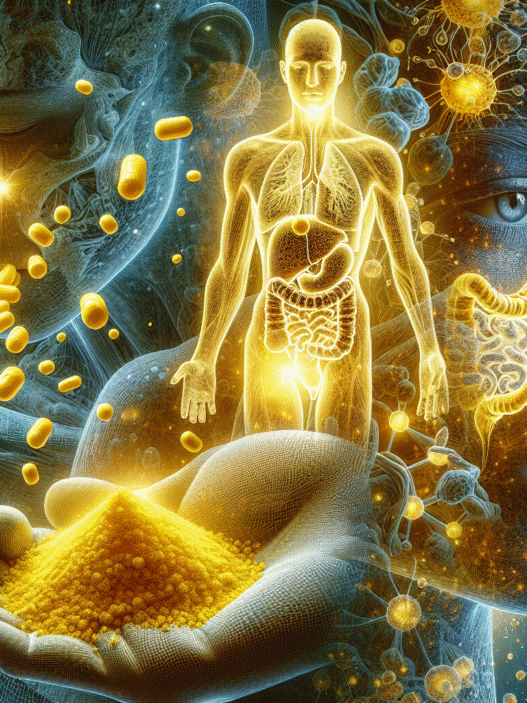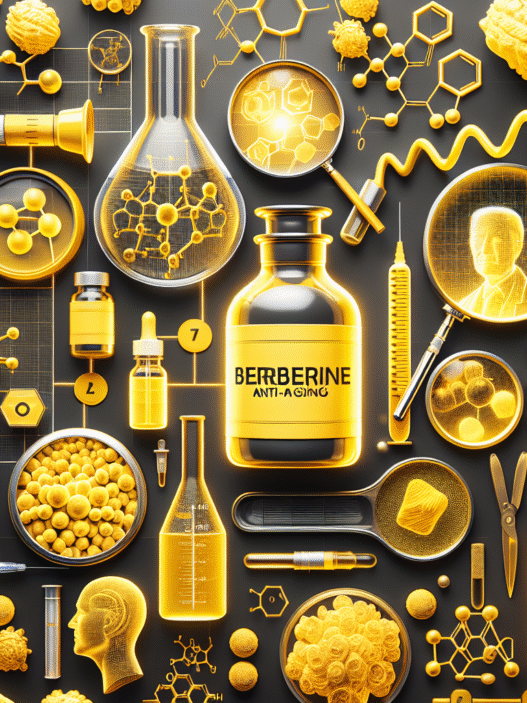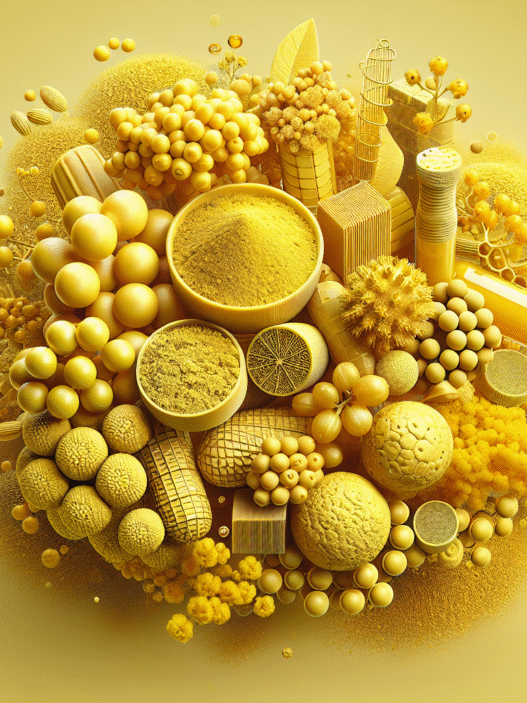Berberine: An Ancient Remedy
Historical Use of Berberine
Berberine has a rich history as a natural remedy, utilized for over 3,000 years. This compound has its roots in traditional Chinese medicine and Ayurvedic practices, where it was employed for various health issues such as infections, wound healing, and digestive disturbances. In these ancient societies, practitioners recognized its potential in treating microbial pathologies and managing a range of ailments.
The medicinal properties of berberine were notable for their effectiveness in addressing conditions that were often challenging to treat with other methods. Berberine became a fundamental component of holistic health practices, and its application extended to various cultures that sought natural solutions for improved well-being.
Cultivation and Origin
Berberine is primarily derived from several plants, including Berberis vulgaris (barberry), which is widely cultivated in China and South Asia. The root and stem of these plants contain the highest concentrations of berberine, making them desirable for both traditional medicine and modern supplementation.
In terms of cultivation, regions that feature temperate climates provide ideal growth conditions for berberine-rich plants. Historically, these plants were gathered from the wild, but over time, farming techniques have been developed to ensure sustainable production. Today, while berberine supplements are readily available in the United States, they have yet to receive approval from the U.S. Food and Drug Administration (FDA) for any specific medical use (Wikipedia).
The resurgence of interest in berberine can be attributed to ongoing research regarding its various health benefits, particularly its potential impact on longevity. This revival underscores the importance of traditional remedies in modern wellness perspectives, especially among followers of functional medicine and holistic health practices.
Berberine’s Impact on Health
Berberine has been gaining attention for its potential health benefits, especially concerning diabetes management, heart health, and cognitive function. This ancient compound may hold key advantages for individuals seeking to enhance their overall wellness.
Diabetes and Blood Sugar Regulation
Research indicates that berberine can significantly assist in controlling blood sugar levels. It helps people with diabetes respond better to insulin and prevents the liver from producing excess glucose. This dual action can lead to improved blood sugar regulation and overall metabolic health.
| Effect | Mechanism |
|---|---|
| Blood Sugar Control | Increases insulin sensitivity, decreases glucose production in the liver |
| Improved Insulin Response | Enhances the body’s ability to use insulin effectively |
These properties make berberine particularly important for individuals managing diabetes.
Heart Health Benefits
Berberine is also noted for its positive effects on heart health. It has shown potential in lowering total cholesterol, “bad” LDL cholesterol, and triglycerides, making it highly beneficial for individuals with high cholesterol (WebMD). In a 2023 review, berberine’s efficacy in improving lipid concentrations was highlighted. However, more high-quality studies are needed to confirm its safety and effectiveness in these areas.
| Benefit | Effect |
|---|---|
| Cholesterol Reduction | Lowers LDL cholesterol and triglycerides |
| Cardiovascular Support | May prevent heart disease risk factors |
The heart health benefits of berberine could play a crucial role in promoting longevity and reducing age-related health conditions.
Cognitive Enhancement
Emerging studies suggest that berberine may also enhance cognitive function. While research in this area is still developing, its anti-inflammatory properties may contribute to improved brain health. Increased cognitive performance can be particularly valuable in combating age-related decline.
As understanding of berberine’s effects grows, its potential impacts on cognitive enhancement may lead to further insights into berberine and longevity as well.
Exploring berberine’s diverse health benefits not only reveals its role in traditional medicine but also emphasizes its potential within modern health and wellness practices. For anyone interested in incorporating this compound into their regimen, it’s also essential to consider the variety of available berberine supplements and their specific health benefits.
Exploring the Potential of Berberine
Berberine is gaining recognition for its various health benefits, particularly concerning its anti-inflammatory and antioxidant effects. As functional medicine and holistic wellness followers seek natural supplements to enhance health, understanding how berberine contributes to these areas becomes essential.
Anti-inflammatory Properties
Berberine has demonstrated significant anti-inflammatory effects. It may lower inflammation in the body by reducing oxidative stress, lowering the production of inflammatory proteins, and promoting immune regulation. These characteristics suggest that berberine could potentially serve as a treatment for inflammatory conditions such as arthritis.
The mechanism behind its anti-inflammatory properties may involve the inhibition of the nuclear factor-kappaB signaling pathway, which plays a crucial role in the body’s inflammatory response (Journal of Biomedical Science). Table 1 summarizes some observed benefits of berberine related to inflammation.
| Benefit | Description |
|---|---|
| Reduces oxidative stress | Limits free radicals that contribute to inflammation |
| Lowers inflammatory proteins | Decreases levels of proteins that promote inflammation |
| Promotes immune regulation | Enhances the body’s ability to manage inflammation |
Antioxidant Effects
In addition to its anti-inflammatory properties, berberine also exhibits powerful antioxidant effects. Antioxidants are crucial for combatting oxidative stress—an imbalance between free radicals and antioxidants in the body, which can lead to cellular damage. The antioxidant potential of berberine provides a protective effect against various age-related conditions.
Research has indicated that berberine may help mitigate premature stress-induced cellular senescence, showcasing a dose-dependent rejuvenating effect. In models of accelerated aging, berberine has shown potential in alleviating age-related declines in body weight and coordination (Aging Cell). Table 2 highlights the advantages of berberine’s antioxidant effects.
| Antioxidant Benefit | Description |
|---|---|
| Protects cells from damage | Shields cells against oxidative stress |
| Reduces risk of age-related diseases | May lower the incidence of conditions related to aging |
| Enhances overall vitality | Supports cellular health and function |
Understanding how berberine interacts with inflammation and oxidative stress provides valuable insight into its role in promoting health and longevity. For those interested in how berberine affects specific health conditions, additional resources are available on topics like berberine benefits, berberine and gut health, and berberine anti-aging properties.
Berberine’s Role in Longevity
Understanding the connection between berberine and longevity provides promising insights for those interested in enhancing their health and vitality as they age. Research suggests that berberine may have significant implications on aging and lifespan extension.
Implications on Aging
Berberine has been shown to positively influence biological markers associated with aging. In studies involving replicative senescent human fetal lung diploid fibroblasts, berberine improved morphology and rejuvenation markers, effectively reducing the rates of senescence-associated beta-galactosidase (SA-beta-gal) expression by approximately 72% in late population doubling cells. This indicates that berberine may not only slow down the aging process at the cellular level but also enhance overall cellular health and activity.
Additionally, in yeast cell studies at a concentration of 20μg/ml, berberine treatment extended lifespan by 28% compared to wild-type cells. This demonstrates its potential anti-aging effects and highlights the important cellular mechanisms that berberine may influence.
Effects on Lifespan
Research has explored berberine’s capacity to extend the lifespan of various organisms, showing significant effects in both mice and yeast. For chemotherapy-treated mice, berberine extended lifespan by approximately 52%, while naturally aged mice showed a lifespan increase of about 16.49%. The residual lifespan of these aged mice improved dramatically, increasing from 85.5 days to an impressive 154 days, underscoring berberine’s potential to enhance health span and life expectancy.
Furthermore, berberine has demonstrated the ability to promote cell proliferation among senescent cells in vitro at low concentrations (0.3125 μg/ml), enhancing cell growth and potentially counteracting the effects of aging.
Overall, the implications of berberine on aging and its positive effects on lifespan present intriguing possibilities for improving longevity. For those interested in understanding more about the benefits of berberine, explore its various applications, including its influence on cellular health and anti-aging mechanisms.
Optimal Dosage and Considerations
Understanding the proper dosage and potential side effects is essential for anyone considering berberine as a supplement for health and longevity.
Recommended Daily Intake
The common recommended daily dosage of berberine typically falls between 900 and 1500 milligrams, ideally divided into three doses taken before meals. This approach helps maximize absorption and efficacy. The most common regimen involves taking 500 mg three times daily, totaling 1,500 mg per day (Healthline). Those new to berberine may want to start with a lower dose to test tolerability, and it’s advisable to maintain consistent intake for at least 12 weeks to experience its health benefits.
Using phytosome technology, which combines berberine with plant-based lecithin, can enhance bioavailability, allowing for a potentially lower dosage while improving tolerability.
| Dosage Recommendation | Dosage (mg) |
|---|---|
| Initial Dose | 500 mg (up to 3 times daily) |
| Common Daily Dose | 900 – 1500 mg (total) |
| Effective Dose | 1,500 mg (three doses of 500 mg each) |
Interactions and Side Effects
Berberine may interact with certain medications, particularly those used to manage blood sugar levels. Therefore, individuals should consult healthcare professionals before starting berberine, especially if they are currently taking other medications. Regular monitoring of blood sugar levels is crucial for those with diabetes, as berberine can significantly reduce glucose levels.
Common side effects reported include:
- Digestive Issues: Diarrhea, constipation, and bloating are among the most frequently observed side effects. In longer-term studies, these symptoms were attributed to disruptions within the gut microbiome (Wikipedia).
- Flatulence: This is also commonly reported.
Awareness of these potential interactions and side effects is vital for anyone exploring the use of berberine for its reputed berberine benefits aimed at promoting longevity.
Berberine: A Modern Approach
Availability of Supplements
Berberine supplements are widely available in various forms, such as capsules, powders, and tinctures. In the United States, these supplements can be found in health food stores, pharmacies, and online marketplaces. However, it is important to note that the U.S. Food and Drug Administration (FDA) has not approved berberine for any specific medical use, which highlights the need for consumers to approach these supplements with caution and informed judgment (Wikipedia).
The recommended daily dosage of berberine typically falls between 900 and 1500 mg, divided into three doses taken before meals (Longevity.Technology). Below is a summarized table displaying the forms of supplements and their typical daily dosages.
| Supplement Form | Typical Daily Dosage (mg) |
|---|---|
| Capsules | 500 – 1500 |
| Powders | 900 – 1500 |
| Tinctures | Varies by concentration |
For those interested in understanding the health benefits of berberine, additional details can be found in our article on berberine benefits.
Current Research Insights
Recent studies have started to highlight the pharmacological properties of berberine, showing potential benefits in various health aspects. Research suggests that berberine may possess immunomodulatory, antioxidative, cardioprotective, hepatoprotective, and renoprotective effects.
Moreover, berberine has shown promising results in regulating blood sugar levels, improving cholesterol profiles, and aiding in weight management (Healthline). Below is a table summarizing some of the key areas of research related to berberine’s health effects:
| Research Area | Potential Benefits |
|---|---|
| Blood Sugar Regulation | May lower blood sugar levels and improve insulin sensitivity |
| Lipid Profile | Can reduce total cholesterol, “bad” cholesterol, and triglycerides |
| Cardiovascular Health | Supports heart health through various cardioprotective mechanisms |
| Weight Management | Aids in reducing body weight and improving metabolic health |
The ongoing research into berberine indicates its potential role in promoting longevity and overall health. For more details on how it affects aging, refer to our discussion on berberine anti-aging effects and berberine and autophagy.





















